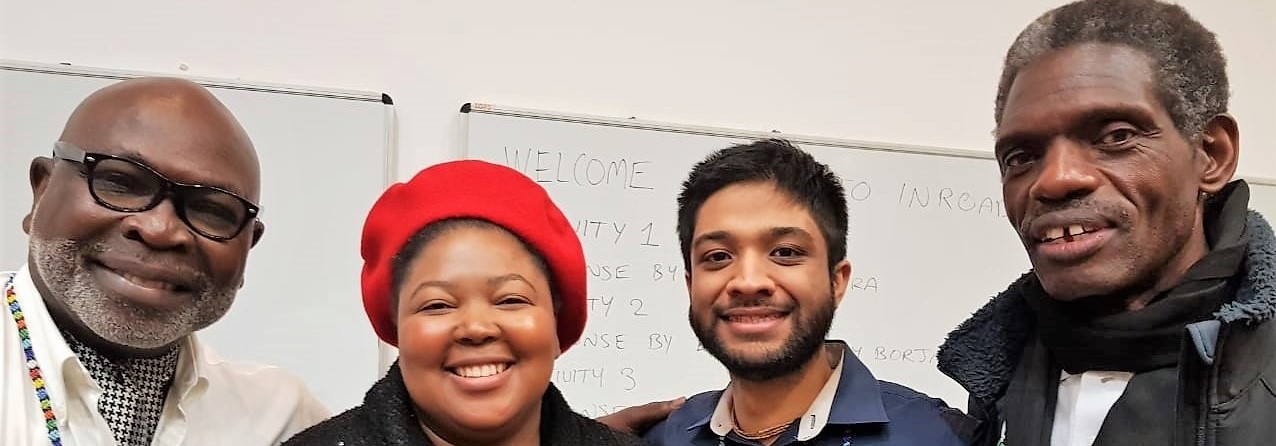South Africa
South Africa: Reproductive Health and Abortion
- Legality:
- The 1996 Choice of Termination of Pregnancy (CTOP) Act legalized abortion
- in the 1st trimester without restriction,
- up to 20 weeks for pregnancies resulting from violence or involving physical, mental, fetal, or socioeconomic risk, and
- beyond 20 weeks for serious maternal or fetal health indications.
- The CTOP Act had an immediate and positive effect on women’s health: annual abortion-related deaths decreased by 91% between 1994 and 1998-2001.
- Most 1st trimester terminations are performed by mid-level providers (e.g., nurses and midwives).
- In 2010, medical abortion was introduced into the Western Cape’s public sector.
- The 1996 Choice of Termination of Pregnancy (CTOP) Act legalized abortion
- Contraception:
- Public sector clinics are the main source of free contraceptive services.
- 15.4% unmet need for contraception has remained relatively constant from 2012-2017.
- Complications:
- Despite groundbreaking nature of South Africa’s law, serious problems with implementation persist.
- Health system challenges in implementing the CTOP Act include a lack of provider awareness of the law, provider opposition, provider conscientious refusal of care, shortages of trained personnel, and poor management.
- ~50% of abortions occur outside of designated health facilities.
- 26% of avoidable maternal deaths were due to unsafe abortions in 2005-2007, up from 21% in 2002-2004.
- 7% of unsafe abortions resulted in severe complications and 30% of cases of maternal mortality were due to self-induced terminations of pregnancy (in 2000).
- Sources:
- http://www.who.int/whosis/whostat/2008/en/index.html
- http://sds.ukzn.ac.za/files/WP%2048%20WEB.pdf
- http://www.info.gov.za/gazette/acts/1996/a92-96.htm
- https://www.guttmacher.org/pubs/IB_AWW-Africa.pdf
- https://www.heard.org.za/wp-content/uploads/2016/06/south-africa-country-factsheet-abortion-20161.pdf
- https://www.guttmacher.org/report/abortion-worldwide-2017
- http://www.familyplanning2020.org/entities/64

GDC/South Africa: Recent Accomplishments
- Increased knowledge and capacity for advocacy:
- Trained over 500 providers including doctors, nurses, midwives, health care managers, clinical associates, and medical students.
- Training both 1) health care managers, who are responsible for managing resources and infrastructure to support abortion provision, and 2) medical and nursing students, who are the next generation of providers, is essential to the sustainable provision of abortion.
- Has witnessed, as a result of these trainings:
- increased availability and provision of medical abortion within the public sector,
- availability of Mifepristone,
- increased demand for abortion provision and advocacy training after providers hear from already trained doctors,
- the Department of Health (DoH) requested and funded GDC/South Africa to provide an abortion skills training, demonstrating trust in GDC/South Africa’s expertise and the recognized need for medical abortion and the associated training,
- increased engagement in WhatsApp advocacy group chat and two new medical students willing and able to be spokespeople.
- Collaborated with the DoH to provide refresher visits and additional training to previously trained providers to ensure abortion access and high-quality provision, especially for geographically and professionally isolated providers.
- Trained over 500 providers including doctors, nurses, midwives, health care managers, clinical associates, and medical students.
- Mitigated conscientious objection (CO) to abortion:
- Attended the International Women’s Health Coalition’s International Conference on Conscientious Objection Uruguay and presented about their experiences in South Africa.
- Engaged in political advocacy:
- Helped procure Mifepristone for the Mpumalanga DoH public health facilities, which allowed:
- more 1st trimester abortions by nurses and midwives at a primary healthcare level,
- reduced the demand for 2nd trimester abortions, and
- enabled providers to end high risk pregnancies (e.g. in-patients with previous cesarean section, fibroid uterus, etc.).
- Partnered with the DoH Maternal, Child, Women’s, and Youth Health unit to support and advocate for sexual and reproductive rights, including rights and access to medical abortion, in order to create sustainable changes within the province public sector health institutions
- Continue to provide expertise and review CTOP provisions, including:
- Incorporating medical abortion (e.g., Mifepristone) into the Essential Drugs List for abortion.
- Ensuring procurement of Mifepristone and protocols are developed to support wide-reaching medial abortion provision.
- Helped procure Mifepristone for the Mpumalanga DoH public health facilities, which allowed:
GDC/South Africa: Leadership
Dr. Ntandho Patrick Godi serves as GDC/South Africa’s lead doctor, Dr. Tlaleng Mofokeng serves as co-lead doctor and Dr. Roland Eddie Mhlanga serves in a mentor role.
GDC/South Africa is supported by an Advisory Committee consisting of experts in medicine, public health, law, bioethics, and education.
WISH Associates serves as the fiscal sponsor for GDC/South Africa.
GDC/South Africa: Lead Doctor Profiles
 Ntandho Patrick Godi, MBChB, FCOG(SA)
Ntandho Patrick Godi, MBChB, FCOG(SA)
GDC/South Africa Lead Doctor
Dr. Ntandho Patrick Godi is Chief Specialist and Head of the Department of Obstetrics and Gynecology at Rob Ferreira Hospital. Dr. Godi is a member and Provincial Representative of the National Committee on Confidential Enquiries into Maternal Deaths in South Africa, and trains doctors and midwives in Emergency Management of Obstetric Emergencies (ESMOE). He serves on the Mpumalanga Maternal and Child Health Discussion Forum, the Mpumalanga Chronic Diseases Forum, and the South African Human Papilloma Virus Advisory Board. He is a current fellow of the College of Obstetricians and Gynecologists of South Africa. He is country contact person for the African Network on Medical Abortion and received a scholarship to participate in the Physicians for Reproductive Health Leadership Training Academy, an intensive advocacy program organized by the US-based organization.
 Tlaleng Mofokeng, MBChB
Tlaleng Mofokeng, MBChB
GDC/South Africa Co-Lead Doctor
Dr. Tlaleng Mofokeng is a general practitioner clinician at the DISA clinic in Johannesburg. As a reproductive health advocate, key opinion leader, and independent consultant, she dedicates her expertise to numerous agencies, including as the founding member and vice-Chairperson of the Sexual and Reproductive Justice Coalition (SRJC), the Founder of Nalane Associates for Reproductive Justice, a board member at Soul City Institute for Social Justice, a Global Advisory board member for Reckitt Benckiser’s Durex, and a board member for Sex Worker Education and Advocacy Taskforce (SWEAT). Her areas of impact have been in clinical care, public health policy, advocacy for law reforms, and content production for public health communication. She has delivered a briefing to the U.S Senate on the impact of U.S foreign policy and the Global Gag Rule; a keynote address at Population Action Fund on Capitol Hill during Advocacy Week; and the first ever civil society statement on behalf of 286 global organizations to the Human Rights Council in Geneva for action to ensure safe and legal abortion access globally.
 Roland Eddie Mhlanga, MBChB, MPH
Roland Eddie Mhlanga, MBChB, MPH
GDC/South Africa Mentor
Dr. Roland “Eddie” Mhlanga is the Provincial Specialist of Obstetrics and Gynecology, Department of Health for Mpumalanga province. He is a member of the National Committee on the Confidential Enquiry of Maternal Death, serves on the International Federation of Gynecology and Obstetrics (FIGO) Task Team on the Prevention of Unsafe Abortion, and has served the WHO, UNFPA, UNICEF, FIGO, and IPPF in various capacities over the years. Previously, he served a board member of Ipas, as the head of the Department of Obstetrics and Gynecology at the Nelson R. Mandela School of Medicine at the University of KwaZulu-Natal, and as the Chief Director of the Maternal, Child, and Women’s Health Unit of South Africa’s National Department of Health where he was instrumental in helping implement the Choice on Termination of Pregnancy Act (1996).


